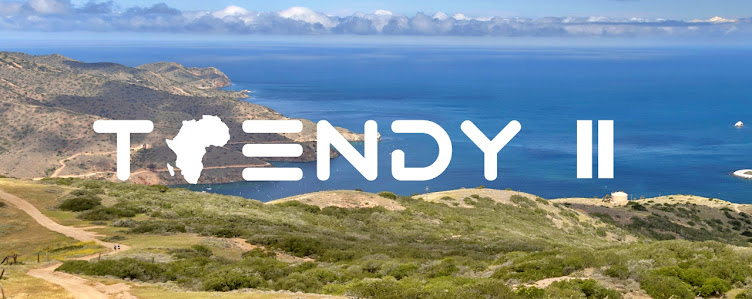Jacqueline Addo remembers the time two years ago when her husband Joshua confided to her that the stress of adjusting to life in Canada from Ghana was proving too much for him to bear. He had reached a breaking point, and her own mental health wasn't great. "I was just a shadow of myself, basically," she said.
Joshua was struggling to find a job in his field as a
financial adviser and had instead worked stints at a courier company and at
Costco. With Jacqueline looking after their children, they were unable to make
ends meet on one salary and had to borrow money from family and friends every
month to survive.
While Joshua has an administrative job with Nova Scotia
Power today, and the couple is finally able to rest a little easier and plan
for the future, not all immigrants fare as well.
The stresses caused by the upheaval of moving to a new
country — and the often-huge chasm between what immigrants are led to expect
about life in Canada and the reality — can lead to depression, frustration and
a loss of self-esteem, according to experts.
A study released in December by Mental Health Research
Canada found that new Canadians are almost twice as likely to express concerns
about feeding their families as people born in Canada.
It said food insecurity and isolation from a family and
friends support network have been tied to higher incidences of mental health
challenges.
In 2022, more than 437,000 immigrants moved to Canada. A
record 12,500 of those arrivals came to Nova Scotia, according to a survey
commissioned by the province — and that figure could rise, with Ottawa hoping
to attract 500,000 newcomers a year by 2026.
Research indicates immigrants tend to have better mental health than their Canadian-born counterparts.
Other research suggests people who successfully navigate
Canada's immigration system, particularly in the economic class, are healthier
because they are well educated, slightly younger than average Canadians and
must go through medical screening.
But over time, he said, the mental health of immigrants
deteriorates until it matches that of the general population — a phenomenon
described as the healthy immigrant effect, or the immigrant paradox. One of the
potential causes, he said, is stress associated with the acculturation process.
Another is diminishing self-worth. As part of the
immigration process, people are considered based on their training and
employment history in their country of origin, and they have the expectation of
getting a similar job in Canada. But once they arrive, they often find it very
hard to use their previous experience and educational credentials, he said.
"It actually affects their aspiration and affects their
self-esteem, and I would say that it also prevents them from developing a
social network with their community in Canada.”
"When they cannot get a job in the labour market, they
find it is really a kind of shame to share with people back home, as well as
the community living in Canada."
It can take immigrants years to work their way back up the
career ladder, the Conference Board of Canada noted in a report it released in
September.
"While the fairy tale of Canada as a land of
opportunity still holds for many newcomers, this study points to burgeoning
disillusionment," conference board CEO Daniel Bernhard said in the report.
"After giving Canada a try, growing numbers of
immigrants are saying 'no thanks,' and moving on."
Immigration, Refugees and Citizenship Canada said in a
statement that it offers preventive and non-clinical mental health support to
newcomers through third-party settlement organizations.
It also partners with the Canadian Mental Health Association
and the Centre for Addictions and Mental Health to help address the mental
health needs of newcomers, the statement said.
According to the conference board report, nearly 15 per cent
of immigrants left Canada within 15 years of obtaining permanent resident
status. But for some who are now hoping to move elsewhere, the process of
uprooting again is not a viable option, particularly if they are older.
A couple sold everything they had and moved from the Indian
state of Punjab in 2018 with their two children. The couple, who are in their
50s, have post-graduate degrees from Indian universities.
Manmeet was a principal at a teaching college and Randeep
was a credit manager at a bank. Manmeet got her Nova Scotia teaching
certification and now works as a substitute teacher but has been unable to find
a permanent position.
Manmeet and Randeep Oberoi moved to Halifax from India in
2018. Despite taking several banking
courses since arriving, Randeep said he is still jobless. He said they expected
it would take some time, maybe up to two years, to find permanent employment. While
the couple are now Canadian citizens, Randeep said he still has no idea how to
make inroads in the job market.
Manmeet said the experience has been especially frustrating
because she loves teaching and has a wealth of specialized skills.
Carmen Celina Moncayo, a supervisor at Immigrant Services
Association of Nova Scotia and a psychologist by training, said the stress
caused by the immigration experience can manifest itself in many ways. "People
can develop depression. People can develop anxiety. People can have sleeping
problems, eating [problems], irritability," she said.
Moncayo, who is originally from Colombia, said her
association teaches people that what they are experiencing is a completely
normal reaction to the feeling of being uprooted. After more than five years in
Nova Scotia, Manmeet Oberoi wonders if the decision to move here was the right
one.
source: yahoo news




























